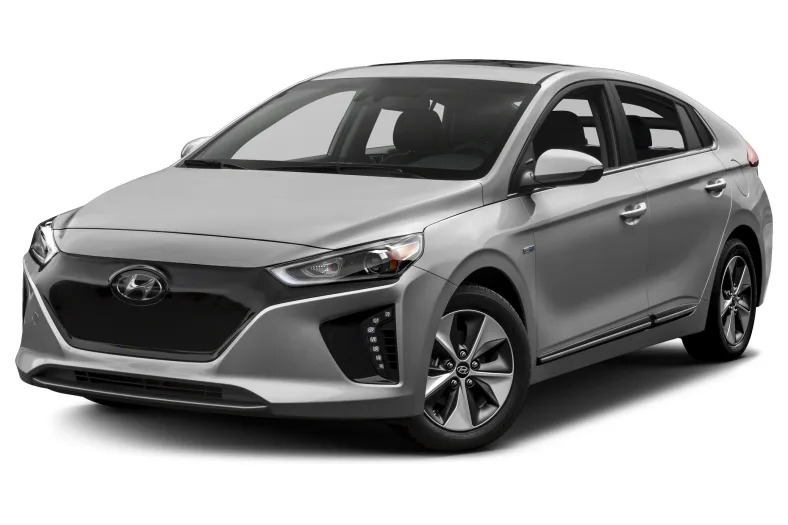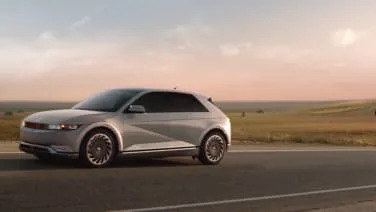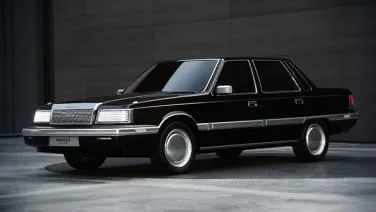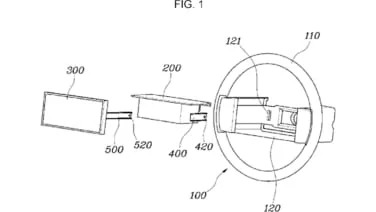2017 Hyundai Ioniq EV
With the Ioniq family, Hyundai has cooked up a recipe that looks really good on paper. As with the pair of hybrid models, the Ioniq Electric combines a high level of efficiency with a nice price and styling that is neither drab nor audacious. This is uncharted territory for Hyundai, though. The dedicated platform shared by this trio of electrified vehicles is completely new, and the electric version is the brand's very first battery-electric vehicle. Hyundai's approach means the Ioniq can carve out its own space in the market and capture the attention – and dollars – of eco-minded buyers on a budget. The three Ioniq offerings are all very similar, both in appearance and in underlying technology. The Ioniq Electric, though, is the only one without a gasoline engine (and, for that matter, without the six-speed dual-clutch transmission the hybrids use). For propulsion, it relies solely on its 88-kW (118-horsepower) electric motor, which provides 215 pound-feet of torque. A 28-kWh battery pack supplies the energy, giving it a respectable 124 miles of driving range between charges. "Wait a minute, Scoob," you might be saying. "Only 124 miles? The Chevy Bolt goes 238 miles on a full battery." Yes, that's right. The Bolt is kind of a young, tough shark swimming in the same waters into which Hyundai is dipping its toes. The Bolt, though, has a starting MSRP of $37,495, which is a big sack of ducats for a compact car. It's also $7,160 more than the Ioniq Electric. We'll revisit the price in a little bit. Same as in the hybrids, the Ioniq EV's interior is attractive and comfortable. The seats are supportive, and it's easy to find a cozy position behind the adjustable steering wheel. Taller occupants might find headroom in short supply, at least in models equipped with a sunroof. The materials are all attractive and nice to the touch, tiller included. The digital instrument cluster is fairly simple, and toggles on the steering wheel allow you to put the information you want right in front of you. The 7.0-inch central touchscreen is attractive, although the large amount of information and features available in the various menus could be a little difficult to navigate for some. Others will appreciate the ability to monitor their energy usage, customize settings, find charging stations, and project their smartphone onto the screen via Apple CarPlay or Android Auto. There's even available wireless charging for phones that support it. The Ioniq Electric, like its hybrid siblings, is supremely smooth and quiet. Instead of a lever, the "gear" selector in the EV is a group of buttons on the center console in front of the armrest. Hit the "D" button, tap the accelerator, and you're off, moving down the road in near-silence. It's not a particularly quick car, hitting 60 mph in about 10 seconds, but what it lacks in outright grunt it makes up for in efficiency and refinement. The Inoiq Electric is easy to drive, tracking nicely on the highway …
Full Review
With the Ioniq family, Hyundai has cooked up a recipe that looks really good on paper. As with the pair of hybrid models, the Ioniq Electric combines a high level of efficiency with a nice price and styling that is neither drab nor audacious. This is uncharted territory for Hyundai, though. The dedicated platform shared by this trio of electrified vehicles is completely new, and the electric version is the brand's very first battery-electric vehicle. Hyundai's approach means the Ioniq can carve out its own space in the market and capture the attention – and dollars – of eco-minded buyers on a budget. The three Ioniq offerings are all very similar, both in appearance and in underlying technology. The Ioniq Electric, though, is the only one without a gasoline engine (and, for that matter, without the six-speed dual-clutch transmission the hybrids use). For propulsion, it relies solely on its 88-kW (118-horsepower) electric motor, which provides 215 pound-feet of torque. A 28-kWh battery pack supplies the energy, giving it a respectable 124 miles of driving range between charges. "Wait a minute, Scoob," you might be saying. "Only 124 miles? The Chevy Bolt goes 238 miles on a full battery." Yes, that's right. The Bolt is kind of a young, tough shark swimming in the same waters into which Hyundai is dipping its toes. The Bolt, though, has a starting MSRP of $37,495, which is a big sack of ducats for a compact car. It's also $7,160 more than the Ioniq Electric. We'll revisit the price in a little bit. Same as in the hybrids, the Ioniq EV's interior is attractive and comfortable. The seats are supportive, and it's easy to find a cozy position behind the adjustable steering wheel. Taller occupants might find headroom in short supply, at least in models equipped with a sunroof. The materials are all attractive and nice to the touch, tiller included. The digital instrument cluster is fairly simple, and toggles on the steering wheel allow you to put the information you want right in front of you. The 7.0-inch central touchscreen is attractive, although the large amount of information and features available in the various menus could be a little difficult to navigate for some. Others will appreciate the ability to monitor their energy usage, customize settings, find charging stations, and project their smartphone onto the screen via Apple CarPlay or Android Auto. There's even available wireless charging for phones that support it. The Ioniq Electric, like its hybrid siblings, is supremely smooth and quiet. Instead of a lever, the "gear" selector in the EV is a group of buttons on the center console in front of the armrest. Hit the "D" button, tap the accelerator, and you're off, moving down the road in near-silence. It's not a particularly quick car, hitting 60 mph in about 10 seconds, but what it lacks in outright grunt it makes up for in efficiency and refinement. The Inoiq Electric is easy to drive, tracking nicely on the highway …
Hide Full Review
Hide Full Review
Retail Price
$29,500 - $32,500
MSRP / Window Sticker Price
| Engine | |
| MPG | Up to 150 city / 122 highway |
| Seating | 5 Passengers |
| Transmission | 1-spd auto |
| Power | 118 @ rpm |
| Drivetrain | front-wheel |
| Curb Weight | 3,164 lbs |
Smart Buy Program is powered by 





